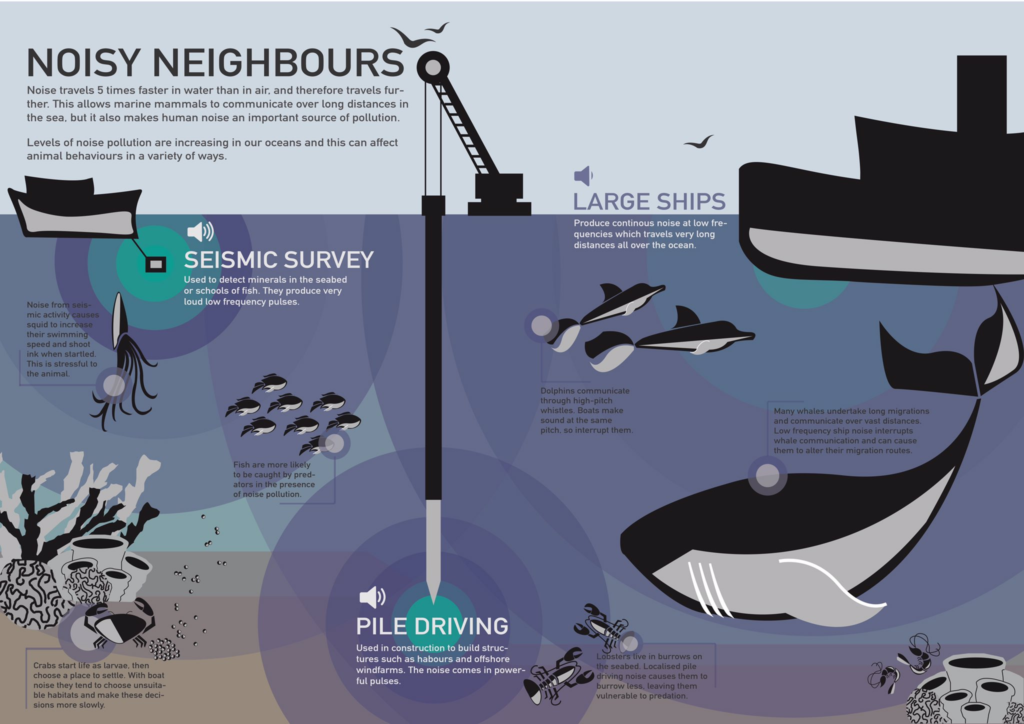
As the world moves towards green energy. The demand for battery metals such as nickel and cobalt has increased, leading to a focus on deep-sea mining. However, this practice may have significant negative consequences on marine life, especially large mammals like whales. Recent studies have suggested that the noise generated during practice of deepwater mining could interfere with the ability of whales to communicate and navigate in the ocean depths.
In this article, we will explore the potential impact of deep-sea mining on whale communication. We will also explore navigation, and the need for further research to better understand its effects on marine life. We will also examine the arguments for and against practice of deepwater mining and its potential impact on aquatic ecosystems.
The Impact of practice of Deep-Sea Mining on Whale Communication

Researchers have found potato-sized rocks filled with battery metals in vast swathes of the ocean floor at depths of 4 to 6 kilometers. Several companies have proposed to vacuum those nodules from the seabed and process their metals for use in electric vehicle batteries. However, the noise generated during this process could interfere with the communication and navigation abilities of whales.
A study backed by Greenpeace’s Umweltstiftung foundation found that mining noises, including those from sea floor remote vehicles, coincide with the communication frequencies of cetaceans. The study suggests collecting field data to evaluate potential threats of deepwater drilling to marine mammals.
Previous research on ocean noise has found that whales can suffer negative effects from deep-sea mining. Man-made noise may increase the risk of humpback whale mothers losing their calves due to their quiet vocalizations, as one study found.

whale communication relies heavily on sound to navigate and communicate. They use low-frequency sounds to communicate with each other over long distances and to navigate the ocean depths. practice of deepwater drilling generates a great deal of noise, which could interfere with the ability of whales to detect and interpret these low-frequency sounds.
The study funded by Umweltstiftung Greenpeace suggests that the noise generated during deep-sea mining could potentially lead to “habitat displacement, changes in behavior, stress, and possible physical injury” to whales and other marine mammals.
Arguments for and Against Deep-Sea Mining
Supporters of deep-sea mining argue that it would lessen the need for large mining operations on land, which are often unpopular with host communities. They also suggest that practice of deepwater mining could provide an alternative source of battery metals, reducing the environmental impact of land-based mining.
However, critics argue that we need far more research to determine how deep-sea mining could affect aquatic ecosystems. The potential impact on marine life, especially large mammals like whales, is a significant concern. The study funded by Umweltstiftung Greenpeace highlights the need for more research to better understand the potential risks associated with practice of deepwater mining.
The Need for Further Research
The International Seabed Authority (ISA), a Jamaica-based United Nations body, may approve deep-sea mining for international waters as soon as this summer. However, leaders in France, Fiji, Canada, and Germany have voiced concerns about the practice.
Vancouver-based The Metals Company and others are pushing ahead with plans to extract nodules from the Clarion Clipperton Zone, an ocean region in the northern Pacific where the ISA has granted 17 seabed mining exploration licenses. An estimated 22 to 30 cetacean species, including endangered blue whales, live in the area, according to the study.
Some potential FAQ questions and answers:
Q: How does deep-sea mining impact whale communication?
A: practice of deepwater mining can produce noise that interferes with whales’ ability to communicate with each other and navigate the ocean depths. This can have negative effects on their feeding, mating, and other behaviors.
Q: What are the potential long-term effects of deep-sea mining on whale communication?
A: Because deep-sea mining is a relatively new practice, its long-term effects on whales and other marine life are not yet fully understood. However, some studies suggest that it could have significant negative impacts on the health and survival of cetaceans in affected areas.
Q: Can practice of deepwater mining be done without harming whale communication?
A: It is unclear whether deep-sea mining can completely avoid harm to whales and other marine life. However, some proponents of deep-sea mining argue that they can carry out mining in a responsible and sustainable way by using best practices to minimize negative impacts.
Q: What can be done to protect whales from the negative effects of deep-sea mining?
A: Some experts suggest that we need more research to fully understand the potential impacts of deepwater mining on whales through deep practice. They recommend taking precautionary measures to minimize negative effects, such as implementing strict regulations and monitoring systems to ensure that mining operations are carried out in a responsible and sustainable way.
Q: Are there any alternatives to deep-sea mining for obtaining the metals needed for green energy technologies?
A: Yes, there are alternative methods for obtaining these metals, such as recycling existing materials and developing new technologies that require fewer rare metals. However, some experts argue that practice of deepwater mining may be necessary in order to meet the growing demand for green energy technologies in a sustainable way.